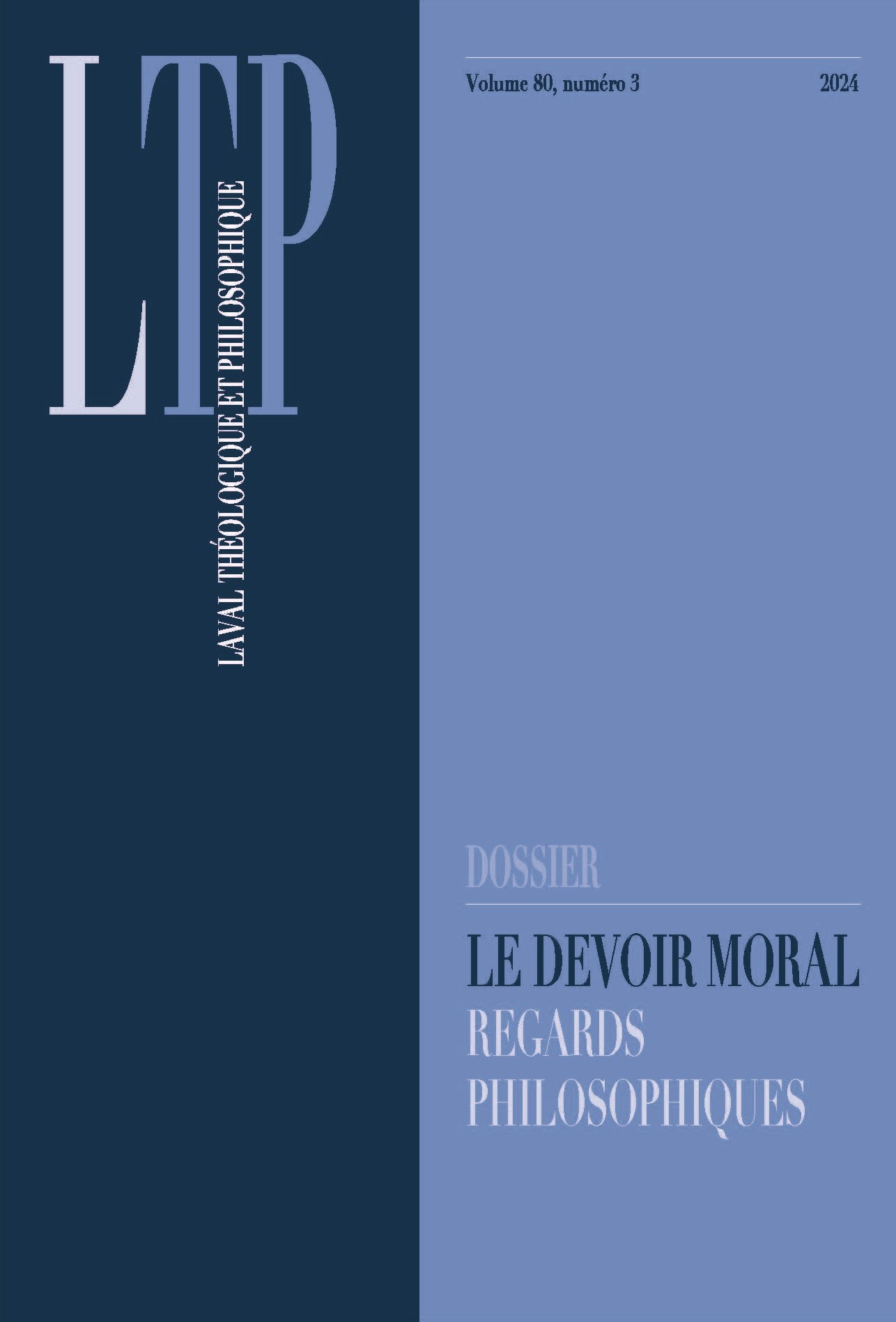Liberté et loi morale chez Kant et Platon
Abstract
At first sight, everything seems to oppose the attitude of Plato and Kant with regard to law. According to Kant, only submission to the moral law gives access to autonomy, and therefore freedom, to the subject, while Plato affirms that any submission to a law is incompatible with the authentic freedom of intelligence. This article tries to make this opposition more nuanced, showing that the deepening of the respective position of each of the two thinkers allows them to be brought closer together, while at the same time highlighting the precise point on which they differ, i.e. the question of the application of this law to particular cases arising in experience.
Downloads
Published
2024-12-17
Issue
Section
Articles

